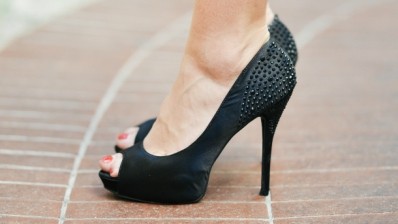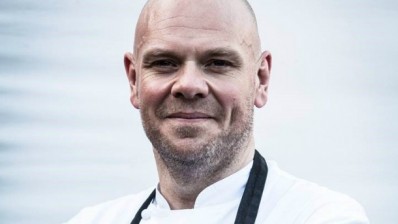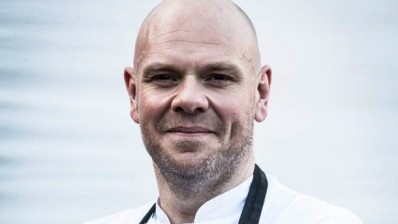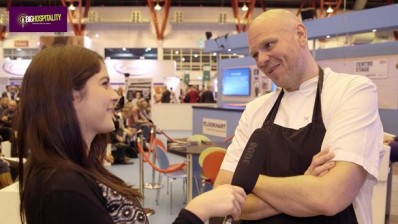SMALL TALK
Tom Kerridge on staff shortages, workplace morale, and culinary legend Alain Ducasse
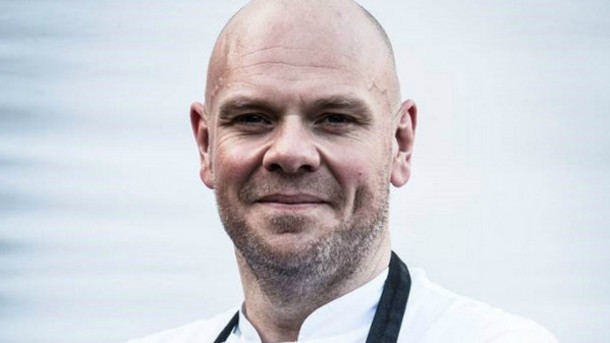
It's often said that it's difficult to get hold of or keep well-trained hospitality staff nowadays. Have you found that, and why do you think it is?
I think people do want more from the industry these days, so it’s about adapting. Someone said to me: when I was young, your aim was to own a rack of CDs.
Now, you can just stream everything and you don't have to own it. So it's about experiences. That's one thing that younger people coming in want: do we visit breweries, suppliers, vineyards? On their days off, can they get out to visit other great restaurants?
People want life value not monetary value. At the bottom of the ladder, it's young people who want to travel and who are full of enthusiasm. You have to gear your business to provide that.
Do you think the staff shortage is a new problem?
It’s always been an issue, even when I first started. I never worked anywhere that was 100 per cent fully staffed all the time. It's a transient business. Even in the Hand and Flowers, if we get the opportunity to employ good staff, we'll take them somehow.
The so-called staffing crisis is not different to when I started. Then, there were maybe eight Michelin star places, but everywhere else was short-staffed. Now, there are more chefs in the industry than there ever was, but there are also far more great restaurants. I think overall that’s a good thing.
Hospitality is a famously tough industry to work in. At the Hand and Flowers, do you have any practices to try and boost staff morale?
We are very good at staff retention, to be honest. I've always tried to make it a family environment. We've got people who have been with us for years, and we really try to make sure that they feel comfortable. That doesn't mean that they don't work hard, but we try to make sure that it's not ‘hard work’.
The whole reason I fell in love with being a chef in the first place is that sense of achievement, when you work hard and you've done something fantastic, and we want people to feel like that.
In the kitchen, the radio is on all day except service; we have two big parties every year, where both The Hand and The Coach are closed and everyone can come. We try to make sure that morale is high, and that there isn’t a separation between front and back of house. If there's any friction we do our best to try and eradicate it.
If front of house staff always get shouted at when they go into the kitchen, there’s an untold nervousness, and you can tell as a customer. And that's not what we're here for ‒ we're here to make sure people have a nice time.
Is that why it was important for you to be involved in the Hospitality Action campaign, It Could Happen To You [highlighting the impact of illness, addiction, violence and depression]?
I think if you've been in the industry long enough, you've known and seen people that are affected by many kinds of issues. Sometimes, within hospitality, it's harder to deal with things due to hours that you work, and it’s tough being able to see doctors and medical professionals while also working unsociable hours. It doesn't help.
As a chef I've seen a number of people go through bumpy times, with addiction or ill health, so from that experience, the campaign was an opportunity to highlight the good side of the industry: people who care very much.
It's about realising every now and again that I do have a voice. It's easy to forget that, but I realise that I am on Twitter with a number of followers on there, and if I do things, it does help raise awareness.
Pubs are having a bit of a moment right now. Do you follow fashion like that?
It doesn't really factor in. We do embrace technology, or new processes or farming ‒ such as types of seasonality or say, aging of meat. But trends and fashions, ingredients, visuals...I pay not a great deal of attention. I do like to know what's going on, but it doesn't alter the business strategy. That's all I need to know. ‘Is there a way of doing this chip better…No?’ Then we'll stick to it.
New things are important because they do lead to excitement, but it's not about jumping on the bandwagon. I've always used seaweed and thought it was amazing, but now it's really fashionable. But I used it 20 years' ago! I'm finally pleased that loads of people love it.
Talking of pubs having a moment, The Hand and Flowers and The Coach were impressively both listed in the Top 100 Restaurants at the NRAs this year. What would you say is the one secret to your ongoing success?
I was very proud to be listed. But honestly, we just set our business up to be very simple. And we haven't ever wavered from that. It was to have good food, cooked properly, served in an environment where people feel comfortable. We haven't once followed fashion trends or tried to be the next best thing. It's always been produce-focused, and done properly.
You see so many restaurants that are the flavour of the month, and you never hear about it again. I don't think that's necessarily bad ‒ it's great for the industry, because it creates a buzz, but for me, consistency is the key thing. Everyone knows the standard they're going to get when they come here, and we work hard to make sure they do get it. For me as a business owner, it's about longevity.
Can you think of any places that you've been really impressed with recently?
The last two best meals that I've eaten ‒ that get talked about a lot ‒ were Sosharu [Jason Atherton’s Japanese-style site in Clerkenwell London], which was absolutely phenomenal food and brilliant design, and then Pitt Cue [the barbecue restaurant in London’s Devonshire Square]. Rock solid cooking over coals, very simple, strong, produce-led cooking, done properly.
When you opened your second pub, The Coach, you said you wanted it to be more neighbourhood-style than The Hand and Flowers, with a no booking policy and regular repeat customers. Has that been successful?
Yes. It's supposed to a local, community hub. That's what I think the local pub should be. People can just go in and have what they like. I would say 70-80% are repeat customers. People aren’t spending loads of money, they're having a burger and a beer with their family, and it's just a nice evening. It’s a great business model. We're really happy with the way that's it going.
It was reported recently that you might be planning to buy O'Donaghue's, another pub in Marlow. Is that still happening?
No, that's a story that came out from small town conversation, as the current owners are leaving. We did have a conversation about it, but we haven't signed anything. If we were to take it on we'd have to consider a new business model. We are always thinking of ways to make new ventures work as we do have a strong team. I'm never going to say never.
You recently collaborated with the great French chef, Alain Ducasse. How did that happen?
We met two and a half years ago at an awards ceremony for GQ Magazine, and we had a great chat. Chefs my age, everyone trained in that style of classic, French cooking, so we found that as we talked, we had the same ethos.
The question came up, would I like to cook alongside him in some capacity? And, it's like, well, of course, yes, that would be amazing. And then it came to, how about M. Ducasse comes to do Sunday lunch at the Hand and Flowers? It was about this great phenomenal world-leader of cuisine, coming to do Sunday lunch at a British pub. It was amazing. For the team and everyone at the H&F, it was one of my proudest moments.
I cannot compliment him and his team enough; they were the epitome of professionalism, quality, and politeness. M Ducasse turns up on Sunday morning, and the first thing he does is shake the kitchen porter's hand. Pure class.
How did it work with the menu, as the Hand and Flowers isn't obviously along those classical roots?
Well, we do cook with French techniques using British produce. Our sauces are made with a French emulsification of butter, and stock; it’s all an understanding of French methods. We did a soup, they did langoustine, and we did a roast, and then they did Eton Mess - although it wasn't that messy. It was an incredibly refined Eton Mess...it was an Eton Tidy!
Any more plans for collaborations?
To be honest, I can't think of anyone else we’d cook with. Where do you go from Alain Ducasse? I don't know! If Michel Roux or Pierre Gagnaire give us a bell, maybe then!
You've also got a successful media career, of course. How do you balance that with your ethos of cooking in the kitchen?
It does prove difficult, yes, having so many hats that you have to wear. I do look at the media commitments as seriously as the pubs, because television and media isn't a doss. It’s good fun, but I never watch the end result. I just ask my wife Beth to watch it, and ask her if it's all right. There's this profile, and I do feel responsible for my staff, and need to ensure that bookings don't drop off. The media is one way of driving the business. But we say no to more things than we say yes to!
You've started a family pretty recently ‒ seven months ago. Has that changed your schedule at all, and what you want to work on?
Yes. Family life itself has changed massively for us. My wife has a huge career of her own, so she's been travelling for that, so I've been travelling too, looking after the little man while she's working. Trying to keep that balance is important. But it's amazing. For 10-11 years, the focus was solely on driving the business, but now we've built this foundation, and our team has brought us to this point where we know they can keep it going. Our success is all about the teams.
